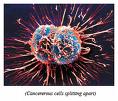Disapproving
Faces
Not Everybody Will Like You
Not Everybody Will Like You
by
Madisyn Taylor
Not
everybody we meet will like us and it is ok to move into acceptance rather than
trying to make somebody like you.
It is not necessarily a pleasant experience, but there will be times in our lives when we come across people who do not like us. As we know, like attracts like, so usually when they don’t like us it is because they are not like us. Rather than taking it personally, we can let them be who they are, accepting that each of us is allowed to have different perspectives and opinions. When we give others that freedom, we claim it for ourselves as well, releasing ourselves from the need for their approval so we can devote our energy toward more rewarding pursuits.
While approval from others is a nice feeling, when we come to depend on it we may lose our way on our own path. There are those who will not like us no matter what we do, but that doesn’t mean that there is anything wrong with us. Each of us has our own filters built from our experiences over time. They may see in us something that is merely a projection of their understanding, but we have no control over the interpretations of others. The best we can do is to hope that the role we play in the script of their lives is helpful to them, and follow our own inner guidance with integrity.
As we reap the benefits of walking our perfect paths, we grow to appreciate the feeling of fully being ourselves. The need to have everyone like us will be replaced by the exhilaration of discovering that we are attracting like-minded individuals into our lives—people who like us because they understand and appreciate the truth of who we are. We free ourselves from trying to twist into shapes that will fit the spaces provided by others’ limited understanding and gain a new sense of freedom, allowing us to expand into becoming exactly who we’re meant to be. And in doing what we know to be right for us, we show others that they can do it too. Connecting our lives with the universe and its energy of pure potential, we transcend limitations and empower ourselves to shine our unique light, fully and freely.








